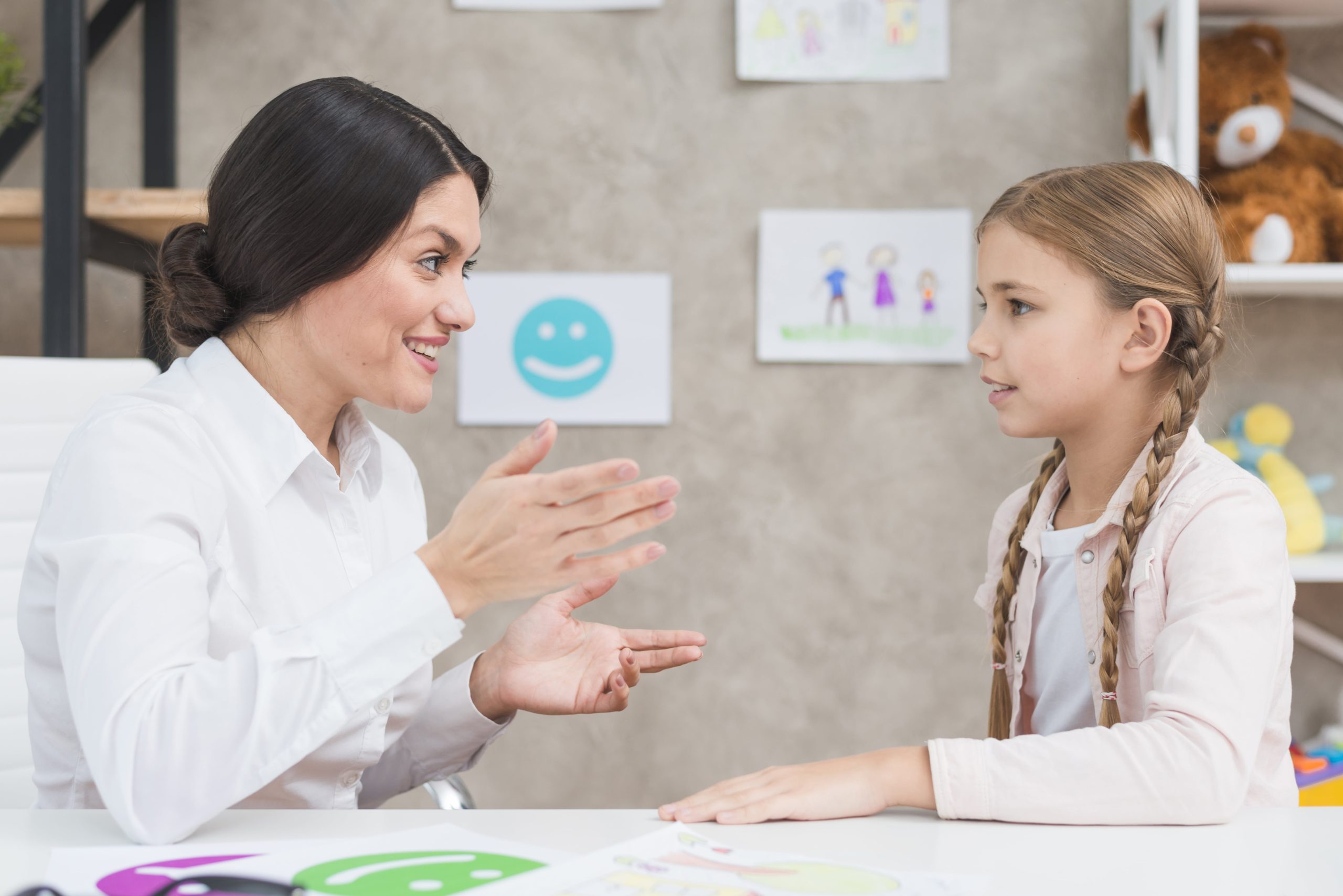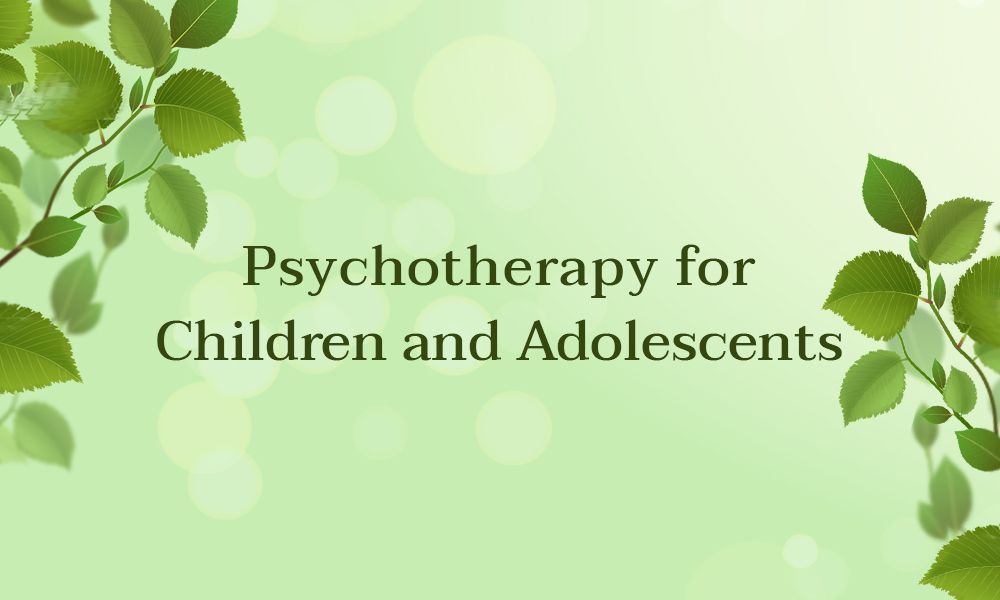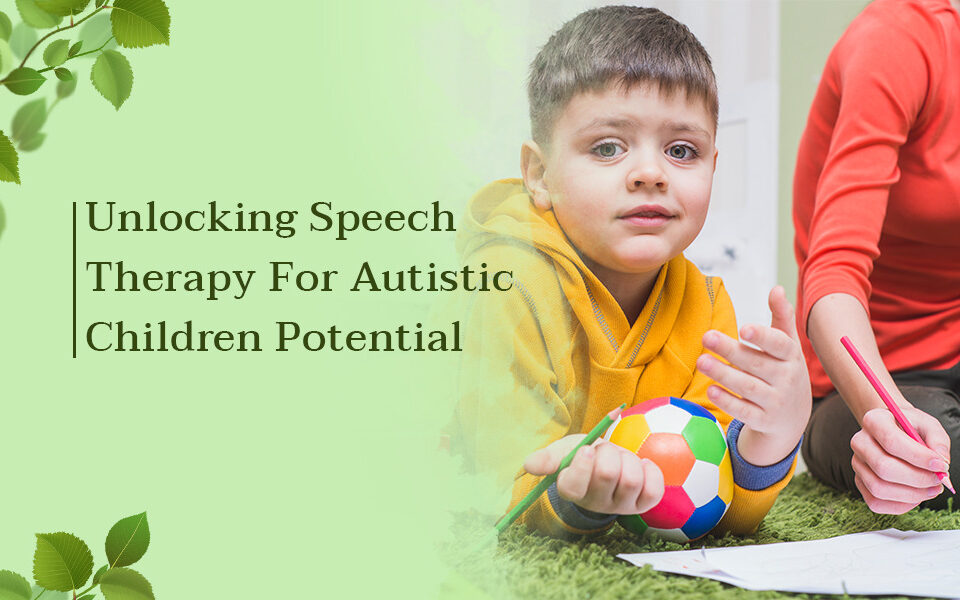- Jofa Tower 5th floor, SB-23, Block 13 C, Main University Rd, Gulshan-e-Iqbal, Karachi.
- +92 322 3746726
- tis@transformation.com.pk
Psychotherapy for Children and Adolescents

What is psychotherapy counseling?
July 7, 2023
Autism Treatment in Karachi,Pakistan
July 14, 2023Psychotherapy for children and adolescents encompasses a variety of therapeutic treatments and interventions aimed at assisting young people in dealing with emotional, behavioral, and mental health concerns. The therapist and the child or teenager work together to improve the kid's or adolescent's general well-being and functioning.
Child and adolescent psychotherapists are highly skilled and rigorously trained mental health specialists who work with children and adolescents, as well as their parents or careers, especially those who are suffering from major mental health problems. Here are some key aspects of psychotherapy for children and adolescents:
Tailored Approach:
Therapists tailor their strategies and processes to the child or adolescent's developmental stage, age, and individual needs. They consider things like cognitive talents, social skills, and emotional maturity.
Play-Based Techniques:
Younger children frequently participate in play-based therapy, in which they express their thoughts, feelings, and experiences through toys, games, painting, or other creative instruments. Play therapy allows them to share and explore their feelings in a safe and natural environment.
Talk-Based Therapy:
Adolescents often participate in more talk-based treatment, where they may express themselves vocally. Depending on the individual's needs, therapists may use cognitive-behavioral therapy (CBT), psychodynamic therapy, family therapy, or interpersonal therapy.
Addressing Mental Health Issues:
Anxiety disorders, depression, attention deficit/hyperactivity disorder (ADHD), trauma, bereavement, eating disorders, and behavioral problems can all be helped by psychotherapy in children and adolescents.
Building Coping Skills:
Therapists help adolescents develop healthy coping skills and emotional regulation strategies. They may teach problem-solving, stress management, communication, and self-care skills, allowing students to effectively traverse problems.
Family Involvement:
In many circumstances, incorporating family members in therapy is critical. Family therapy assists in the resolution of familial conflicts, the improvement of communication, and the support of the child or adolescent in the context of their relationships and environment.
School Collaboration:
Psychotherapists frequently work with teachers, school counsellors, and other educational professionals to help children and adolescents with their academic and social development. This collaboration might include exchanging tactics, providing direction, and advocating for the needs of the child.

What does Child and Adolescent Psychotherapy offer?
Child and adolescent psychotherapy has numerous advantages and can address various areas of a young person's well-being. Here are some of the most important services provided by child and adolescent psychotherapy:
Emotional Support: Psychotherapy offers children and adolescents a secure and confidential environment in which to express and explore their emotions. Therapists assist individuals in navigating challenging emotions such as sadness, anger, worry, or fear, as well as developing healthy coping and management strategies.
Behavior Management: Psychotherapy aids in the treatment of behavioral difficulties by understanding the underlying causes of troublesome behaviors. Therapists collaborate with children and adolescents to develop techniques for behavior modification, self-regulation, impulse control, and acceptable social skills.
Treatment for Mental Illness: Anxiety disorders, depression, post-traumatic stress disorder (PTSD), obsessive-compulsive disorder (OCD), eating disorders, substance abuse, and attention-deficit/hyperactivity disorder (ADHD) are all treated effectively with child and adolescent psychotherapy. Evidence-based therapies customized to the specific condition are used by therapists to promote symptom reduction and increased functioning.
Improved connections: Psychotherapy assists young people in developing and improving connections with family members, peers, and other significant people in their lives. Therapists aid in the development of effective communication, empathy, and problem-solving abilities, as well as the promotion of healthy connections and social interactions.
Self-Exploration and Identity Formation: Psychotherapy allows children and adolescents to explore their sense of self, personal values, and identity. It can be especially helpful at times of transition, such as adolescence, in assisting individuals with identity formation, self-esteem difficulties, and self-acceptance.
Coping Skills and Resilience Development: Therapists educate young people on useful coping skills for dealing with stress, adversity, and life obstacles. Children and adolescents who learn resilience and adaptive coping methods are better prepared to deal with setbacks, negotiate transitions, and maintain positive mental health.
Prevention and Early Intervention: Psychotherapy can be used as a preventive measure, recognizing and resolving potential mental health issues before they become more severe. Early intervention can help reduce the impact of psychological disorders, promote healthy development, and improve long-term outcomes.

What is the role of Child and Adolescent Psychotherapists?
Children and adolescents who have severe and long-term mental health issues may react to people and situations in ways they do not understand and cannot manage. Their emotions might be intense, and they frequently express themselves through their actions and troublesome relationships. Relationships with services and experts are frequently affected by these challenges. This can prevent young children from receiving the care and chances that they deserve.
Child and Adolescent Psychotherapists' approach tries to go past the surface of difficult emotions, actions, and relationships in order to assist children, adolescents, and their families in understanding themselves and their difficulties. They are taught to pay close attention to what a kid or young person is communicating nonverbally through their behavior and play.
Child and Adolescent Psychotherapists have significant training that allows them to work with these very unpleasant thoughts as well as create and maintain relationships with children and young people to help them make sense of their experience. Confusion, fear, hurt, anger, or pain can be expressed verbally rather than physically. As a result, the child can begin to express their feelings in less disturbed ways and return to the regular developmental process. They are more likely to feel less worried, more capable of learning, and better able to maintain friendships.
It's important to note that child and adolescent psychotherapists adhere to ethical guidelines, maintain confidentiality, and prioritize the welfare and best interests of their young clients throughout the therapeutic process.
Psychotherapy & Psychologist Treatment in Karachi
Book An Appointment For Intake sessions / Consultancy/ OPD charges Rs.1000 only/-




